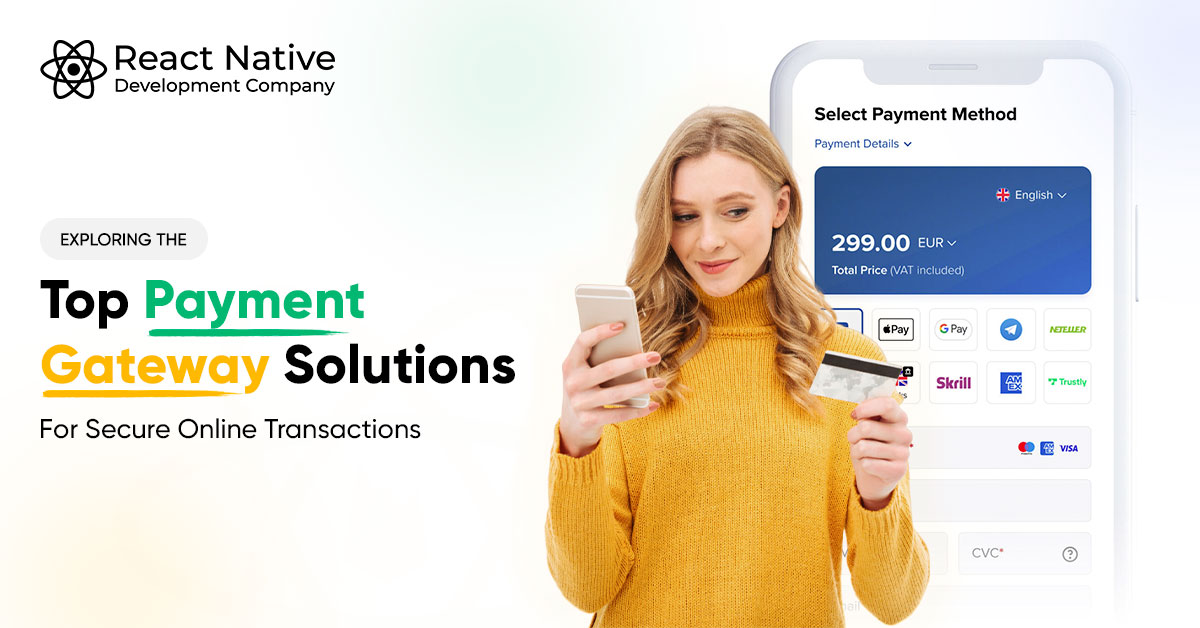
Exploring the Top Payment Gateway Solutions for Secure Online Transactions
In the rapidly evolving landscape of e‑commerce, where convenience and security are paramount, the role of payment gateways has become indispensable. A payment gateway serves as the technological bridge that enables seamless and secure online transactions. For businesses, integrating the right payment gateway can significantly impact customer satisfaction, trust, and overall revenue. In this article, we will delve into the world of payment gateways, exploring their significance, types, and the best options available in the USA.
Understanding Payment Gateways: Facilitating Online Transactions
The term “payment gateway” might sound complex, but its function is quite straightforward. A payment gateway is a software application that facilitates the processing of online transactions, enabling businesses to accept payments from customers through various digital channels. This technology ensures that sensitive payment information, such as credit card details, remains secure during the transaction process.
What exactly is a Payment Gateway and How is its Functionality?
At its core, a payment gateway encrypts the sensitive data involved in an online transaction, making it virtually impossible for unauthorized entities to gain access to it. When a customer initiates an online purchase, the payment gateway performs several key steps:
- Transaction Initiation: The customer submits their payment details on the merchant’s website during checkout.
- Encryption: The payment gateway encrypts the payment information, ensuring its confidentiality.
- Authorization: The encrypted payment data is sent to the payment processor or acquiring bank.
- Transaction Approval: The acquiring bank forwards the payment request to the respective card association (Visa, Mastercard, etc.).
- Response: The response, either approval or decline, is sent back through the same channels to the payment gateway.
- Customer Notification: The customer receives a transaction confirmation or decline message.
- Settlement: The payment is settled, and funds are transferred to the merchant’s account.
Importance of a Secure Payment Gateway in E‑commerce
For e‑commerce businesses, the importance of a secure payment gateway cannot be overstated. It serves as the first line of defense against cyber threats and instills confidence in customers. A secure payment gateway:
- Prevents Data Breaches: Encryption and security protocols safeguard sensitive customer information, reducing the risk of data breaches.
- Builds Trust: Customers are more likely to complete a purchase when they trust that their payment details are secure.
- Reduces Liability: Payment gateways assume responsibility for safeguarding customer data, reducing the liability of businesses.
- Enhances Reputation: Offering a secure payment experience can lead to positive reviews and recommendations, enhancing the business’s reputation.
Types of Payment Gateways
Payment gateways come in various types, each catering to specific business needs and preferences. Here are some common types of payment gateways:
Hosted Payment Gateways
Hosted payment gateways direct customers away from the merchant’s website to a secure payment page hosted by the gateway provider. This approach simplifies the merchant’s security responsibilities, as sensitive data is processed on the provider’s secure server.
Self-hosted Payment Gateways
Self-hosted gateways allow merchants to collect payment information on their own website, which is then transmitted to the gateway for processing. While providing more control over the payment process, this type requires adherence to stringent security standards.
API Payment Gateways
API (Application Programming Interface) gateways offer the highest level of customization. They allow merchants to integrate the payment process seamlessly into their website, enhancing the user experience.
Top Payment Gateway Solutions in the USA
When it comes to selecting the right payment gateway for your business, the USA offers a plethora of options. Here are some of the leading payment gateway services:
1. PayPal
As one of the most recognized and widely used payment gateways, PayPal offers a user-friendly interface and supports international transactions. Its robust security features and extensive integration options make it a popular choice for businesses of all sizes.
2. Stripe
Stripe stands out for its developer-friendly approach. With its powerful APIs, businesses can create highly customizable payment experiences. It supports a wide range of payment methods and offers strong security measures.
3. Authorize.Net
A pioneer in the payment gateway industry, Authorize .NET provides a reliable and secure platform. It offers a comprehensive suite of features, including fraud detection, recurring billing, and an intuitive interface.
4. Square
Square is known for its simplicity and accessibility. This is a fantastic option for small enterprises and emerging startups. Square’s point-of-sale solutions and online payment options provide a seamless experience for customers.
5. Braintree
Owned by PayPal, Braintree offers advanced payment solutions with a focus on mobile and online payments. Its extensive global reach and support for multiple currencies make it ideal for businesses with an international customer base.
Exploring Specialized Payment Gateway Solutions
In addition to the well-known payment gateway solutions mentioned above, there are specialized options that cater to specific business needs and niches. Let’s take a look at some of these specialized payment gateway solutions:
1. B2B Payment Gateways
Business-to-business (B2B) transactions often involve larger sums of money and more complex invoicing structures. B2B payment gateways are designed to accommodate these unique requirements. Solutions like Pay Stand specialize in B2B payments, offering features such as invoicing, recurring billing, and support for multiple payment methods.
2. Mobile Payment Gateways
As mobile commerce continues to rise, having a mobile-friendly payment gateway is crucial. Apple Pay and Google Pay are two prominent mobile payment solutions that enable customers to make payments using their smartphones, enhancing convenience and accessibility.
3. Global Payment Gateways
For businesses with an international customer base, global payment gateways like Worldpay (now part of FIS) provide support for a wide range of currencies and payment methods. They also assist in navigating complex cross-border regulations and ensure a smooth payment experience for customers worldwide.
4. Subscription-based Payment Gateways
Businesses offering subscription-based services require payment gateways that can handle recurring billing efficiently. Recurly is a payment solution tailored for subscription models, helping businesses manage subscriptions, trial periods, and churn rates effectively.
Selecting the Right Payment Gateway: Key Considerations
Choosing the ideal payment gateway for your business involves careful consideration of various factors. Consider the following important factors:
1. Security Features
Security should be a top priority. Ensure that the payment gateway adheres to industry standards such as PCI DSS compliance. Look for features like tokenization, encryption, and fraud detection mechanisms.
2. Integration and Customization
Take into account how smoothly it can be integrated with your current website or e‑commerce platform. If you require a high level of customization, opt for a gateway that offers robust APIs and developer-friendly tools.
3. Transaction Fees
Different payment gateways have varying fee structures. Be aware of transaction fees, monthly charges, and any additional costs associated with international transactions or currency conversion.
4. User Experience
A smooth and intuitive payment process contributes to a positive user experience. Look for gateways that offer hosted payment pages or customizable payment forms that align with your brand’s aesthetics.
5. Customer Support
In the event of problems arising, having responsive customer support is crucial. Choose a payment gateway provider known for providing excellent customer service and timely assistance.
The Future of Payment Gateways: Innovations and Trends
The landscape of payment gateways continues to evolve, driven by technological advancements and changing consumer preferences. Some emerging trends and innovations in the payment gateway space include:
1. Biometric Authentication
Biometric authentication methods such as fingerprint recognition and facial scanning add an extra layer of security to payment processes, reducing the reliance on traditional password-based methods.
2. Voice-activated Payments
Voice commerce is gaining momentum, and payment gateways are adapting to this trend. Integrating voice-activated payment capabilities can enhance the convenience of online transactions.
3. Cryptocurrency Integration
As cryptocurrencies become more mainstream, some payment gateways are exploring ways to integrate digital currencies as a payment option, expanding the choices available to customers.
4. Artificial Intelligence and Machine Learning
AI and machine learning are being employed to enhance fraud detection and prevention mechanisms. These technologies analyze transaction patterns to identify and prevent suspicious activities.
The Synergy of Payment Gateways and React Native Apps
In the ever-expanding world of e‑commerce, the integration of payment gateways with cutting-edge technologies is a strategic move that can redefine the user experience. One such technology that has gained significant traction is React Native, a versatile framework for building mobile applications. By merging the capabilities of payment gateways with the power of React Native apps, businesses can create seamless and secure payment experiences that resonate with today’s tech-savvy consumers.
Harnessing the Potential of React Native Apps
React Native, developed by Facebook, is an open-source framework that allows developers to build native mobile applications using a single codebase. This means that developers can create apps for both iOS and Android platforms simultaneously, streamlining the development process and reducing time-to-market.
The key advantage of React Native lies in its ability to deliver a native-like experience while utilizing a shared codebase. This not only accelerates development but also ensures consistent performance across different devices, resulting in higher user satisfaction.
Conclusion
In a digital age where online transactions are the norm, payment gateways serve as the guardians of secure, convenient, and efficient payments. From the basics of how payment gateways work to the specialized solutions available, businesses have a wealth of options to choose from. When selecting a payment gateway, meticulous consideration of security features, integration capabilities, fees, and customer support is essential. By aligning with the right payment gateway solution, businesses can offer a seamless and secure payment experience, fostering trust and loyalty among their customer base.
As technology advances, we can expect payment gateways to evolve further, embracing innovations that enhance security, accessibility, and user experience. Businesses that stay informed about these trends and adapt accordingly will be well-positioned to navigate the ever-changing landscape of online transactions. Ultimately, the right payment gateway choice today can lay the foundation for a successful, customer-centric e‑commerce journey tomorrow.
Frequently Asked Questions
Payment gateway solutions are online platforms that facilitate secure and seamless transactions between customers and businesses. They encrypt sensitive payment information, authorize transactions, and ensure funds are transferred securely.
Payment gateways use encryption and tokenization to safeguard sensitive data like credit card details. They also employ fraud detection measures, such as AVS and CVV checks, to prevent unauthorized transactions.
Some of the top payment gateway solutions include PayPal, Stripe, Square, Authorize.Net, and Braintree. These solutions offer various features and integrations to meet different business needs.
Yes, hosted gateways redirect customers to a third-party page for payment, while integrated gateways allow customers to complete the transaction without leaving your website. Integrated gateways offer a more seamless user experience.
Yes, some best practices include using HTTPS for your website, keeping your gateway software updated, complying with PCI DSS standards, and regularly monitoring transactions for suspicious activity.


